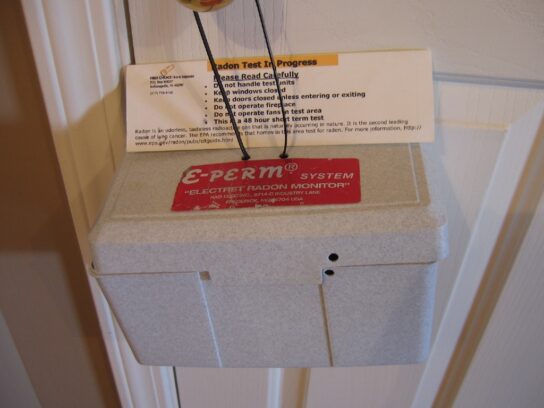
January is National Radon Action Month and the Montgomery County Department of Environmental Protection is warning county residents of the risk of radon in this area. Montgomery County has high levels of radon in the soil and according to the department’s website, every home should be tested.
#ICYMI January is #NationalRadonActionMonth. Radon has been found in homes in every state across the U.S.. Testing is the only way to know if it is in yours! Learn more from @MyGreenMC ➡️ https://t.co/EGpYDUTapb. pic.twitter.com/94QRv3WwKD
— Montgomery County MD (@MontgomeryCoMD) January 25, 2022
Radon is an invisible, radioactive gas that is made during the natural breakdown of uranium in rocks and soils. It is found in nearly all soils and typically can move up through the ground and into homes or buildings through cracks and other holes in the foundation.
While it doesn’t cause any health risks outdoors because it is diluted in the open air, radon can build up to dangerous levels inside a house. The U.S. Environmental Protection Agency (EPA) worked with state and federal geologists to create maps that predict the potential indoor radon levels for every county. Those with the highest potential numbers of radon are designated as Zone 1 and those with the lowest are in Zone 3.
Montgomery County has been labeled as a Zone 1 area which means there is a predicted average radon level at or above the EPA’s 4.0 pico-Curies per liter (pCi/L) action level. Since October of 2016, a county law requires that single-family homes located in the County must be tested for radon before they can be sold.
Radon is also considered the second leading cause of lung cancer in the U.S., according to the U.S. Surgeon General. If you smoke and your home has high radon levels, your risk of lung cancer is especially high.
The EPA estimated that radon causes about 21,000 lung cancer deaths each year. More information on the health effects of long-time radon exposure can be found on the EPA’s Radon Health Risks Webpage. Testing kits for radon can also be purchased at any nearby home improvement store.
The county and the EPA have several brochures on radon that are available to download through the County Department of Environmental Protection’s website. Information on radon testing requirements when buying or selling a home can be viewed here.
Related Posts:
With Radon at High Levels, Officials Urge Residents to Take Action

Comments are closed.